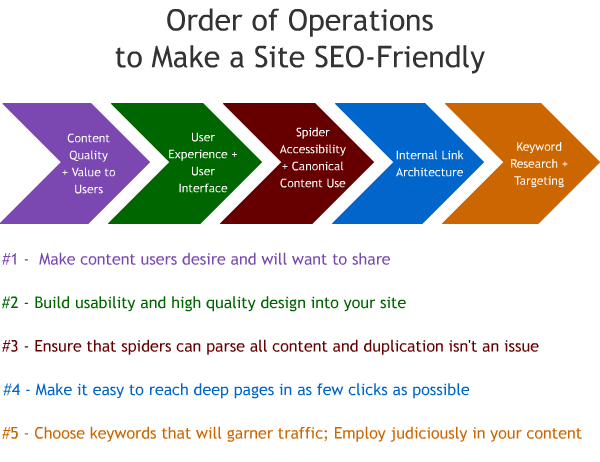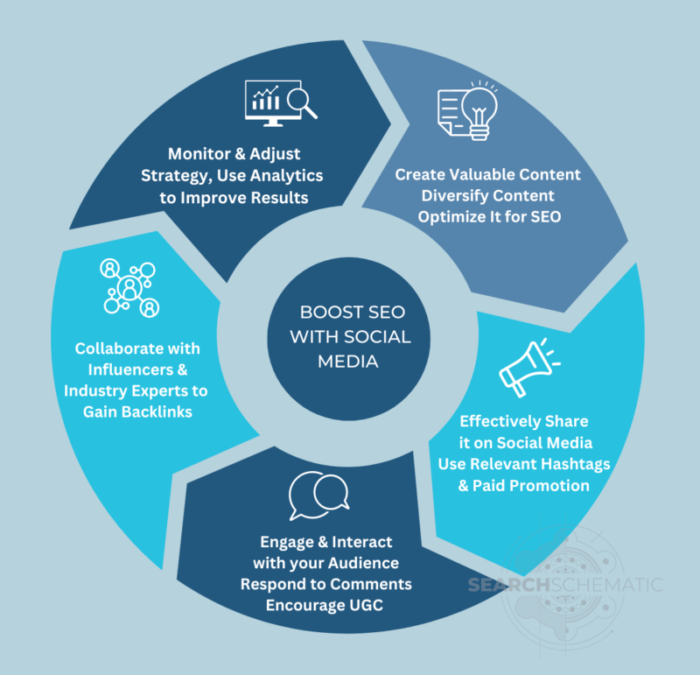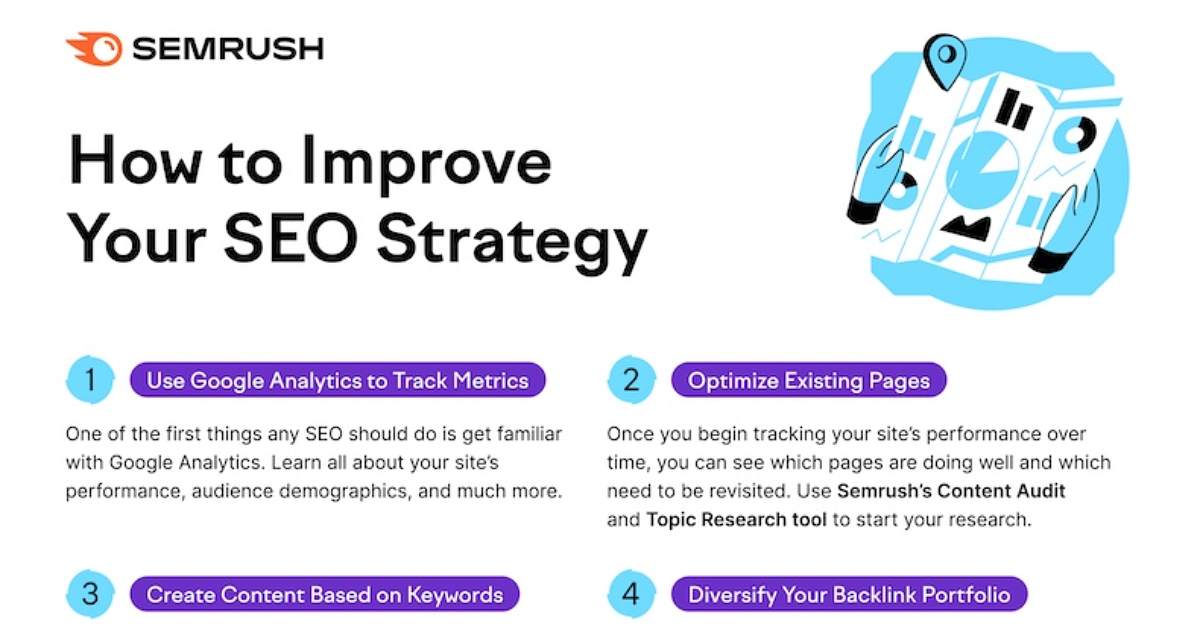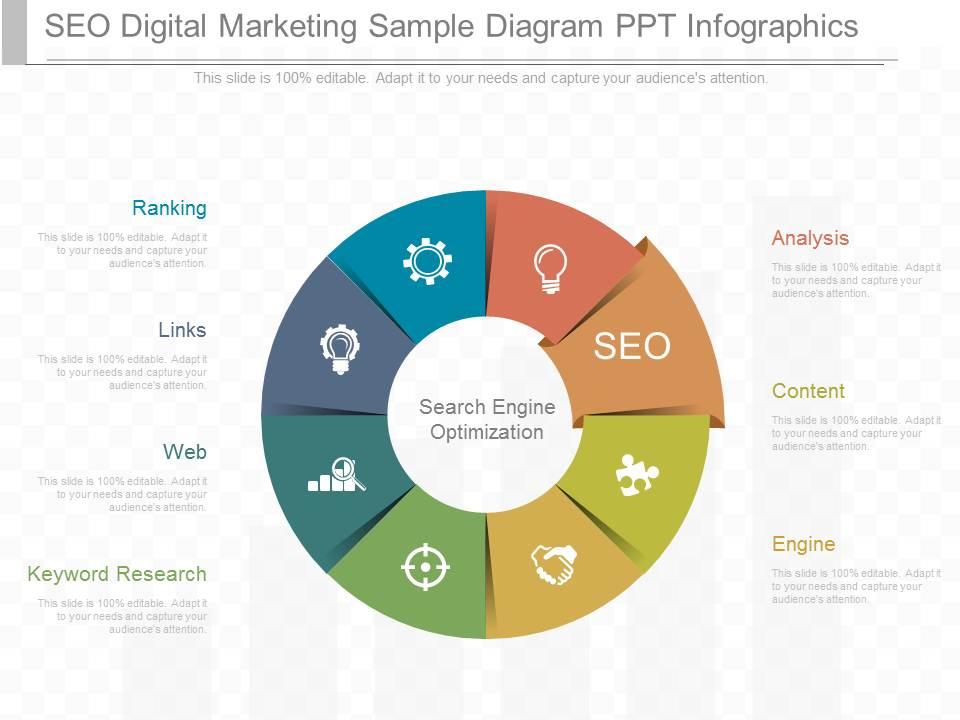![]()
Thank you for reading this post, don't forget to subscribe!
Uncover the secrets to dominating search engine rankings with these powerful SEO strategies. Don’t miss out on these expert tips!

Image courtesy of via DALL-E 3
Table of Contents
- Introduction to SEO Marketing
- What SEO Means
- How Search Engines Work
- The Magic of Keywords
- Finding the Right Keywords
- Creating Content that Ranks
- Smart Website Design and Structure
- Using Links Wisely
- SEO Services and Professionals
- Staying on Top of SEO Changes
- Local SEO for Local Businesses
- Tracking Your SEO Success
- Common SEO Myths Busted
- Frequently Asked Questions About SEO
- Conclusion: Mastering SEO Marketing
Introduction to SEO Marketing
When we talk about SEO marketing, we are delving into a world where websites aim to stand out and attract more visitors. SEO stands for Search Engine Optimization, and it plays a crucial role in helping websites appear at the top of search results. This means that when people search for something online, websites that have good SEO practices will show up first, making it easier for people to find them. SEO marketing is like a secret code that helps websites get noticed in a crowded online world.
SEO services are like superheroes for websites, making sure they have all the right tools and strategies to climb to the top of search engine results. By working with SEO experts, websites can reach more people and grow their online presence. Without SEO services, websites might get lost in the vast sea of the internet, making it hard for people to find them. That’s why SEO marketing is so important for websites that want to succeed online.
What SEO Means
SEO marketing, which stands for Search Engine Optimization marketing, is a crucial tool for websites to appear at the top of search results. But what does that really mean? Let me break it down for you.
Defining SEO Marketing
SEO marketing is like a secret code that helps websites speak the same language as search engines like Google. When someone searches for something online, search engines use this secret code to figure out which websites are the most relevant and helpful for that search. SEO marketing is all about making sure your website follows that secret code so that it shows up at the top of the search results.
Imagine you’re looking for a new video game to play. You type in “best adventure game for kids” on Google. The websites that appear at the top of the search results are the ones that have mastered SEO marketing. They understand the secret code and have used it to make sure their website is the most relevant to your search.
So, in simple terms, SEO marketing is like a superhero cape for websites, helping them stand out in the crowded online world.
How Search Engines Work
Search engine marketing is all about understanding how search engines work to help your website rank higher in search results. Let’s dive into the basics of how search engines like Google sort and display information from websites.

Image courtesy of blog.hubspot.com via Google Images
Sorting Website Information
When you type a query into a search engine, like “best pizza near me,” the search engine goes through thousands of web pages to find the most relevant ones to show you. It does this by using special algorithms that consider factors like keywords, website quality, and relevance to your search.
Displaying Search Results
Once the search engine has sorted through all the websites, it displays the results on the search engine results page (SERP). The websites that are considered the most relevant and useful for your query appear at the top of the page, making it more likely for you to click on them.
Understanding how search engines work is key to mastering SEO marketing and getting your website noticed by more people online.
The Magic of Keywords
Keywords play a magical role in the world of SEO marketing. But what exactly are keywords, and why are they so important?
Unlocking the Power of Keywords
Keywords are the words or phrases that people type into search engines like Google when they are looking for information. These words act as a bridge between what users are searching for and the content on websites. When websites use the right keywords, they are more likely to appear at the top of search results, gaining more visibility and traffic.
The Significance of Using the Right Keywords
Choosing the right keywords is crucial for SEO marketing success. By selecting the most relevant and popular keywords related to their content, website owners can attract more visitors who are interested in what they have to offer. It’s like speaking the same language as the search engine to ensure your website gets noticed.
Now that we understand the magic behind keywords, let’s explore how to find the perfect keywords to boost your website’s SEO rankings.
Finding the Right Keywords
When it comes to SEO marketing, one of the crucial elements for success is finding the right keywords. Keywords are the words or phrases that people type into search engines like Google when they are looking for information. By using the right keywords on your website, you can improve your chances of appearing at the top of search results, making it easier for potential customers to find you.

Image courtesy of searchschematic.com via Google Images
What Are Keywords?
Keywords are the terms that best describe the content of your website. They are the words that people are most likely to type into a search engine when looking for information related to your business. For example, if you have a bakery in New York City, some of your keywords might be “best bakery in NYC,” “fresh pastries,” or “artisanal bread.”
How to Find Effective Keywords
There are several methods you can use to find the right keywords for your website. One way is to put yourself in the shoes of your target audience and think about what words they would use to search for your products or services. You can also use online tools like Google Keyword Planner to research popular keywords in your industry.
Another helpful technique is to look at your competitors’ websites and see what keywords they are using. This can give you valuable insights into what words are working well in your industry. Once you have a list of potential keywords, you can use them strategically throughout your website to improve your SEO rankings.
In conclusion, finding the right keywords is essential for boosting your website’s visibility in search engine results. By understanding what keywords your target audience is using and incorporating them effectively into your website content, you can increase your chances of reaching potential customers and growing your online presence.
Creating Content that Ranks
When it comes to making your website rank high on Google, creating quality content is key. This means that the content you publish on your website should be informative, well-written, and relevant to your target audience. But it’s not just about writing any content; you also need to optimize it for search engines. This is where Google SEO optimization comes into play.
The Role of Content Creation in SEO
Google SEO optimization is all about making sure that the content on your website is structured and written in a way that search engines like Google can easily understand. By including relevant keywords in your content, you are telling Google what your website is about and helping it rank your website higher in search results.
But remember, it’s not just about stuffing your content with keywords. You also need to focus on creating valuable and engaging content that will keep your readers coming back for more. This means writing content that provides solutions to their problems, answers their questions, or entertains them in some way.
Quality and Keyword Density
When creating content that ranks, it’s important to strike a balance between quality and keyword density. Quality content means that your writing is well-researched, well-written, and provides value to your readers. Keyword density, on the other hand, refers to how often you use your target keywords in your content.
While it’s essential to include keywords in your content, you don’t want to overdo it. This practice, known as keyword stuffing, can actually hurt your SEO rankings. Instead, aim for a natural and organic use of keywords throughout your content. This will not only help your website rank higher on Google but also make it more enjoyable for your readers to engage with.
Smart Website Design and Structure
When it comes to boosting your website’s visibility and ranking high on search engine results pages, having a smart website design and structure plays a crucial role. Let me explain how a well-structured website can significantly contribute to better SEO.

Image courtesy of www.marketingprofs.com via Google Images
Organized Navigation
One important aspect of website design is creating a clear and organized navigation system. This means making it easy for visitors to find the information they are looking for quickly. When your website is easy to navigate, search engines like Google can crawl through your pages more efficiently, leading to better indexing and ultimately higher rankings.
Mobile-Friendly Design
With more and more people using their smartphones to browse the internet, having a mobile-friendly website design is essential. A responsive design ensures that your website looks good and functions correctly on all devices, including smartphones and tablets. Google gives preference to mobile-friendly websites in search results, so optimizing for mobile can give you a significant SEO boost.
Fast Loading Speed
Did you know that website loading speed is a crucial factor in SEO ranking? A slow website can lead to high bounce rates and lower search engine rankings. By optimizing your website’s images, using a reliable hosting service, and minimizing unnecessary elements, you can improve your site’s loading speed, making it more search engine friendly.
Quality Content Placement
Another aspect of smart website design is the placement of quality content. Search engines love fresh, informative, and relevant content. By strategically placing your content on your website, using headings and subheadings, and incorporating relevant keywords, you can make it easier for search engines to understand and index your content, thus boosting your SEO efforts.
By paying attention to these key elements of website design and structure, you can set your website up for success in the competitive world of SEO marketing. Remember, a well-designed website not only looks good to visitors but also performs well in search engine rankings.
Using Links Wisely
Links play a significant role in SEO marketing. Both internal links (those within your website) and external links (those from other websites) are crucial for improving your website’s visibility and ranking on search engines. Let me explain why links are so important and how you can use them wisely to enhance your SEO strategies.
The Importance of Links in SEO Marketing
Search engines like Google use links to discover new web pages and determine how they should rank in search results. When other reputable websites link back to your site, it signals to search engines that your content is valuable and trustworthy, boosting your credibility. Internal links help search engines navigate and understand the structure of your website, leading to better indexation and ranking.
Tips for Using Links Wisely
When incorporating links into your content, make sure they are relevant and add value to the reader’s experience. Avoid overloading your pages with unnecessary links, as this can be seen as spammy by search engines. Aim to include a mix of internal links to other pages on your website and external links to authoritative sources in your niche. Additionally, use descriptive anchor text that accurately reflects the content of the linked page to improve user experience and SEO.
Remember that quality always trumps quantity when it comes to links. Focus on building a natural and diverse link profile that showcases your expertise and authority in your field. By using links wisely, you can strengthen your SEO marketing efforts and attract more organic traffic to your website.
SEO Services and Professionals
When it comes to boosting your website’s visibility and ranking on search engines, SEO services and professionals play a crucial role. An SEO service provider or strategist can help optimize your website to improve its search engine performance, ultimately driving more traffic to your site.

Image courtesy of www.slideteam.net via Google Images
The Role of SEO Services
SEO services encompass a range of activities aimed at enhancing your website’s online presence. These services may include keyword research, content optimization, link building, and technical website enhancements. By analyzing your website’s performance and implementing various strategies, SEO services aim to improve your site’s visibility in search results.
The Importance of SEO Strategists
An SEO strategist is a professional who specializes in developing and implementing SEO strategies to help websites rank higher in search engine results. These experts stay up-to-date with the latest SEO trends and algorithms to ensure that your website remains competitive in the online landscape. Whether it’s conducting keyword research, optimizing meta tags, or monitoring website performance, an SEO strategist can provide valuable insights and recommendations to enhance your SEO efforts.
Staying on Top of SEO Changes
SEO marketing is constantly evolving, with search engines like Google frequently updating their algorithms to provide users with the best search results. It’s crucial to stay informed about these changes to ensure your website continues to rank well.
Adapting to Algorithm Changes
When search engine algorithms change, your SEO strategies may need to change as well. By staying on top of these updates, you can make the necessary adjustments to your website and content to maintain or improve your search rankings.
Following Industry Experts
One way to stay informed about SEO changes is to follow industry experts and reputable sources in the field. These professionals often share insights, tips, and updates on the latest trends and algorithm changes in SEO marketing.
Continual Learning and Education
SEO marketing is a dynamic field, and there is always something new to learn. By dedicating time to educate yourself on the latest SEO practices and strategies, you can stay ahead of the curve and adapt your marketing efforts accordingly.
Testing and Analyzing Results
Testing different SEO strategies and analyzing the results can help you understand what works best for your website. By monitoring traffic, engagement, and conversion rates, you can identify areas for improvement and make data-driven decisions to optimize your SEO performance.
Networking with Peers
Networking with other SEO professionals and peers in the industry can provide valuable insights and perspectives on the latest SEO trends and changes. By sharing knowledge and experiences, you can stay informed and exchange ideas to enhance your own SEO marketing strategies.
Local SEO for Local Businesses
When it comes to promoting a business online, local SEO is a game-changer. Local businesses need to focus on specific strategies to ensure that they are visible to potential customers in their area. Let’s dive into some key considerations for local SEO.

Image courtesy of contentatscale.ai via Google Images
Targeting Local Keywords
One crucial aspect of local SEO is targeting keywords that are relevant to your geographic location. Including the name of your city or region in your keywords can help you attract local customers who are searching for products or services in your area.
Optimizing Google My Business
Google My Business is a powerful tool for local businesses. Make sure to claim and optimize your Google My Business listing with accurate information about your business, including your address, phone number, and operating hours.
Local Citations and Directories
Getting your business listed in local directories and citations can boost your local SEO efforts. Make sure your business name, address, and phone number (NAP) are consistent across all listings to build trust with search engines.
Localized Content Creation
Creating content that is specific to your local area can help you connect with your target audience. Incorporate local events, news, and other relevant information into your content to show that you are an active part of the community.
Encouraging Customer Reviews
Customer reviews play a significant role in local SEO. Encourage your satisfied customers to leave positive reviews on platforms like Google, Yelp, and Facebook to boost your online reputation and visibility.
Mobile Optimization for Local Searches
With the increasing number of people using mobile devices to search for local businesses, it’s crucial to ensure that your website is mobile-friendly. Mobile optimization can improve user experience and help you rank higher in local search results.
Tracking Your SEO Success
Tracking your SEO success involves using analytics to measure the effectiveness of your strategies. Analytics are tools that help you collect data about your website’s performance, such as how many people visit your site, how long they stay, and which pages they view the most.
Key Performance Indicators
Key performance indicators, or KPIs, are metrics that indicate the success of your SEO efforts. These may include website traffic, bounce rate, conversion rate, and keyword rankings. By monitoring these KPIs, you can see what is working well and where improvements are needed.
Setting Goals
Before you start tracking your SEO success, it’s essential to set specific and measurable goals. Whether it’s increasing website traffic, improving keyword rankings, or boosting conversions, having clear objectives will help you focus your efforts and evaluate your progress accurately.
Regular Monitoring
Monitoring your SEO performance should be an ongoing process. Regularly check your analytics to see how your website is performing and identify any areas that need attention. By staying vigilant and proactive, you can make timely adjustments to your strategy to achieve optimal results.
Common SEO Myths Busted
When it comes to SEO marketing, there are many myths and misconceptions that can mislead website owners. Let’s go over some of the common myths and set the record straight.
Myth: SEO is a One-Time Effort
Some people believe that once you optimize your website for search engines, you’re done. However, SEO is an ongoing process that requires constant monitoring and updates to stay competitive in search results.
Myth: More Keywords Equal Better Rankings
While keywords are crucial for SEO, stuffing your content with too many keywords can actually hurt your rankings. It’s essential to use keywords strategically and naturally within your content.
Myth: SEO is All About Meta Tags
While meta tags play a role in SEO, they are not the only factor that search engines consider. Quality content, backlinks, and website structure are also important for ranking well in search results.
Myth: SEO is a Magic Bullet for Instant Success
SEO takes time to show results, and it’s not a quick fix for instant success. It requires patience, consistency, and ongoing effort to see improvements in your website’s search engine rankings.
Myth: Paid Ads Can Replace SEO
While paid advertising can boost your website’s visibility, it’s not a substitute for organic search results. SEO helps your website gain credibility and long-term visibility in search engines.
By debunking these common myths, you can have a clearer understanding of what SEO marketing truly entails and how to effectively utilize it for your website’s success.
Frequently Asked Questions About SEO
SEO keywords are specific words or phrases that users type into search engines to find relevant websites. These keywords are crucial for SEO marketing because they help search engines understand what your content is about and rank it accordingly.
How Can Google SEO Optimization Improve My Website’s Ranking?
Google SEO optimization involves using various strategies to make your website more search engine friendly. By optimizing your website according to Google’s guidelines, you can improve its chances of ranking higher in search results, leading to increased visibility and traffic.
Conclusion: Mastering SEO Marketing
Throughout this article, we’ve delved into the world of SEO marketing, uncovering the strategies and techniques that can help websites climb to the top of search engine results. From understanding the importance of SEO marketing to utilizing keywords effectively and creating quality content, mastering SEO is a journey that requires dedication and knowledge.
Key Takeaways
SEO marketing is crucial for ensuring that your website is visible to the right audience. By implementing strategic keyword research, creating valuable content, and optimizing your website’s structure, you can significantly improve your chances of ranking higher in search engine results.
Working with SEO services and professionals can also be a game-changer for your website’s success. These experts can provide valuable insights, track your progress, and keep you updated on the latest SEO trends and changes in algorithms.
Continuous Learning and Adaptation
As we conclude our discussion on mastering SEO marketing, it’s essential to remember that SEO is a dynamic field that requires continuous learning and adaptation. Staying on top of SEO changes and trends is key to ensuring your website remains competitive in the online landscape.
By incorporating the strategies and tips outlined in this article, you can set yourself on the path to becoming an SEO strategist in your own right. Remember, the journey to mastering SEO marketing is ongoing, but with dedication and persistence, you can achieve remarkable results for your website.
Get Your Free SEO Report Now.
GET YOUR WEBSITE Seo Report
About us and this blog
We are a digital marketing company with a focus on helping our customers achieve great results across several key areas.
Request a free quote
We offer professional SEO services that help websites increase their organic search score drastically in order to compete for the highest rankings even when it comes to highly competitive keywords.
Subscribe to our newsletter!
More from our blog
See all postsRecent Posts
- Boost Your Pagerank with Proven SEO Tips April 2, 2024
- SEO Cheat Sheet: Top Google Tips April 2, 2024
- Boost Sales with Google SEO Optimization April 2, 2024










